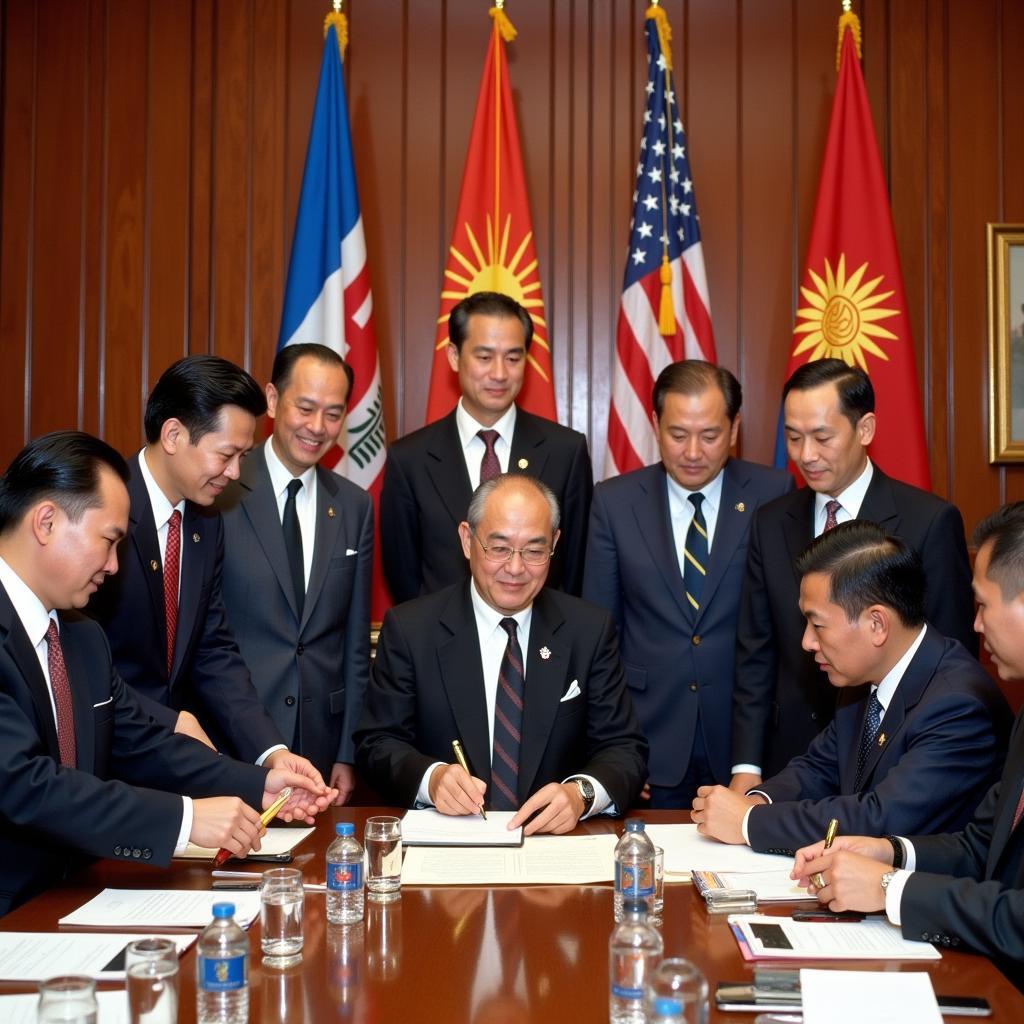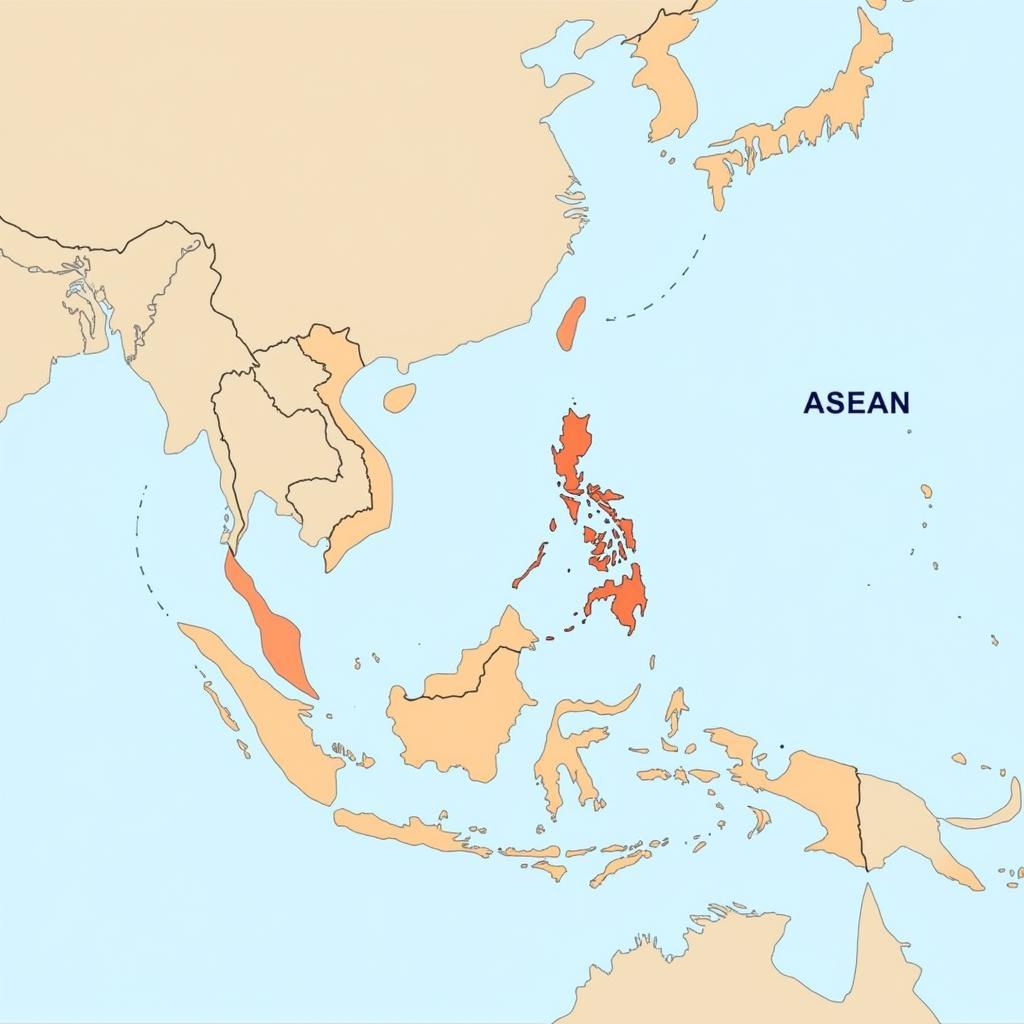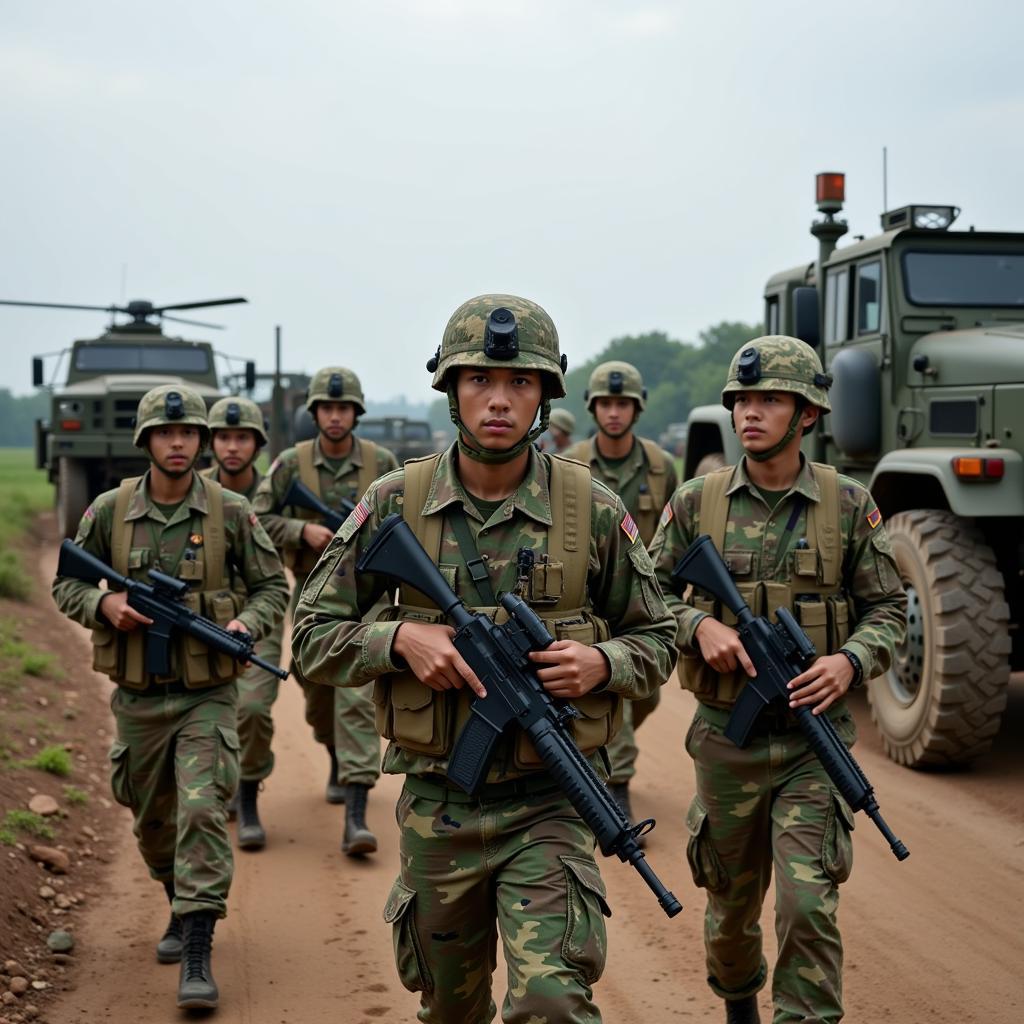The formation of ASEAN marked a pivotal moment in Southeast Asian history. Understanding who the first members were (Anggota Pertama Asean) is key to grasping the organization’s foundational principles and its evolution. This article delves into the origins of ASEAN, highlighting the crucial role of its founding members and exploring their enduring impact on regional cooperation and development.
The Founding Five: Who Were the Anggota Pertama ASEAN?
The Association of Southeast Asian Nations (ASEAN) was established on August 8, 1967, by five pivotal nations: Indonesia, Malaysia, the Philippines, Singapore, and Thailand. These five countries are recognized as the “anggota pertama asean,” laying the groundwork for what would become a dynamic and influential regional bloc. The Bangkok Declaration, signed by these founding fathers, solidified their commitment to regional peace, social progress, and economic development.
 ASEAN Founding Fathers Signing Bangkok Declaration
ASEAN Founding Fathers Signing Bangkok Declaration
Why These Five? The Rationale Behind the Anggota Pertama ASEAN
The selection of these five nations as the anggota pertama asean wasn’t arbitrary. Several factors contributed to their shared vision for regional cooperation. These included geographical proximity, intertwined histories, and shared post-colonial experiences. They also faced common challenges, such as the threat of communism and the need for economic stability. By uniting, these nations aimed to create a stronger, more resilient Southeast Asia.
Shared Aspirations and Common Challenges
A key driver for the formation of ASEAN was the shared desire for peace and stability. The Cold War loomed large, and the founding members recognized the importance of presenting a united front. Economic development was another crucial objective. By fostering cooperation, they hoped to attract foreign investment and boost regional trade.
 Map of Southeast Asia Highlighting Founding ASEAN Members
Map of Southeast Asia Highlighting Founding ASEAN Members
The Bangkok Declaration: A Cornerstone of ASEAN
The Bangkok Declaration, also known as the ASEAN Declaration, encapsulates the fundamental principles upon which ASEAN was built. It emphasizes respect for national sovereignty, non-interference in internal affairs, and the peaceful settlement of disputes. These principles remain central to ASEAN’s operations today, guiding its approach to regional challenges and fostering a culture of dialogue and collaboration.
Key Principles of the Bangkok Declaration
- Mutual respect for the independence, sovereignty, equality, territorial integrity, and national identity of all nations.
- The right of every State to lead its national existence free from external interference, subversion, or coercion.
- Renunciation of the threat or use of force.
- Effective cooperation among members.
The Legacy of the Anggota Pertama ASEAN
The five founding members have left an indelible mark on ASEAN. Their vision of a united and prosperous Southeast Asia continues to shape the organization’s trajectory. Their commitment to cooperation has paved the way for significant achievements in various sectors, including trade, security, and socio-cultural exchange.
Conclusion: A Foundation for the Future (anggota pertama asean)
Understanding the role of the anggota pertama asean—the five founding members—is essential to appreciating the significance of ASEAN. Their foresight and commitment laid the groundwork for a regional organization that has become a cornerstone of peace, stability, and prosperity in Southeast Asia. Their legacy continues to inspire ASEAN’s pursuit of a more integrated and resilient region.
FAQ
- Who are the founding members of ASEAN? Indonesia, Malaysia, the Philippines, Singapore, and Thailand.
- When was ASEAN founded? August 8, 1967.
- What is the Bangkok Declaration? The founding document of ASEAN, outlining its core principles.
- What does “anggota pertama asean” mean? It means “first members of ASEAN” in Indonesian.
- Why is understanding the founding members important? It provides insight into ASEAN’s origins and guiding principles.
- What were the main goals of the founding members? Peace, stability, and economic development.
- How has ASEAN evolved since its founding? It has expanded its membership and deepened regional cooperation.
Need support? Contact us 24/7: Phone: 0369020373, Email: [email protected], Address: Thon Ngoc Lien, Hiep Hoa, Bac Giang, Vietnam.

